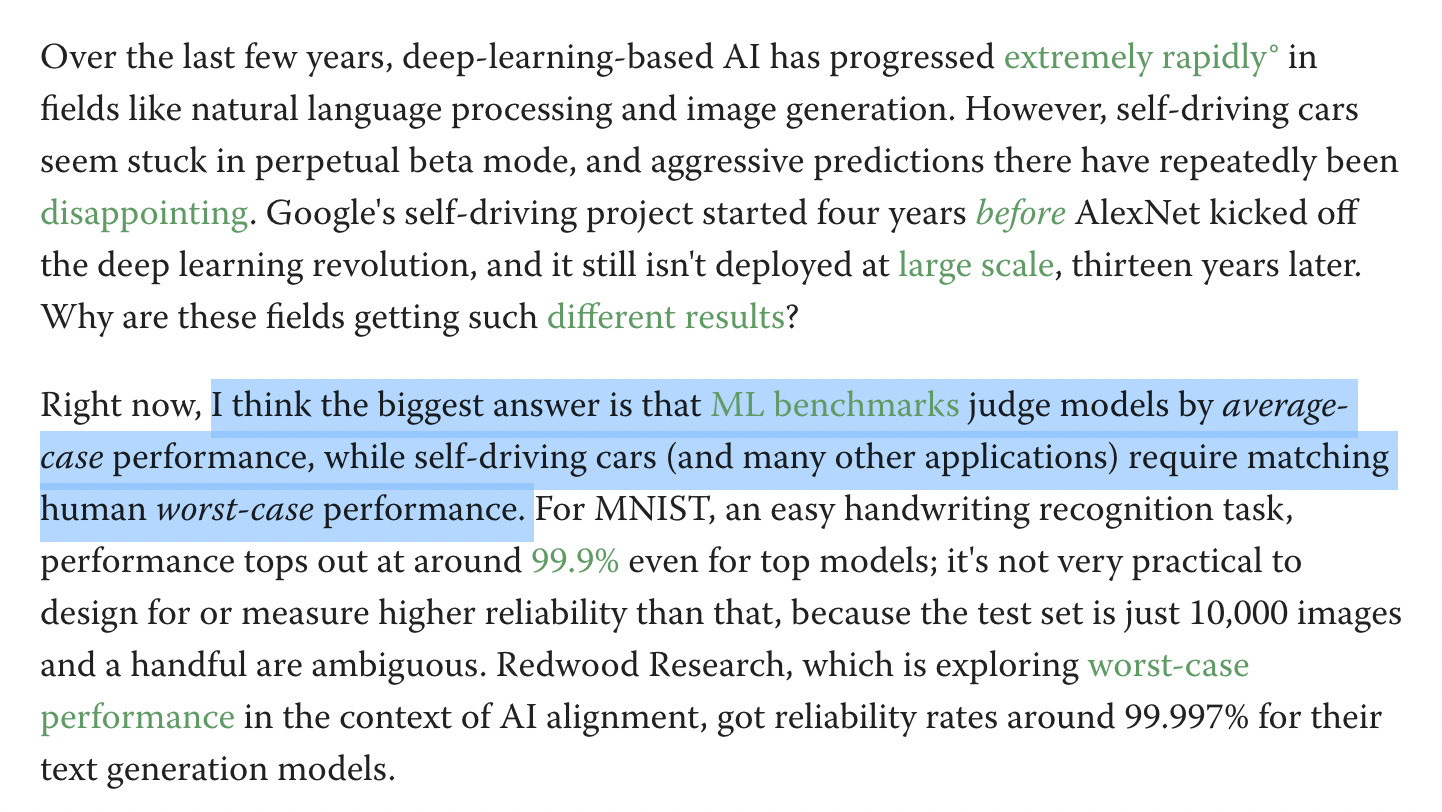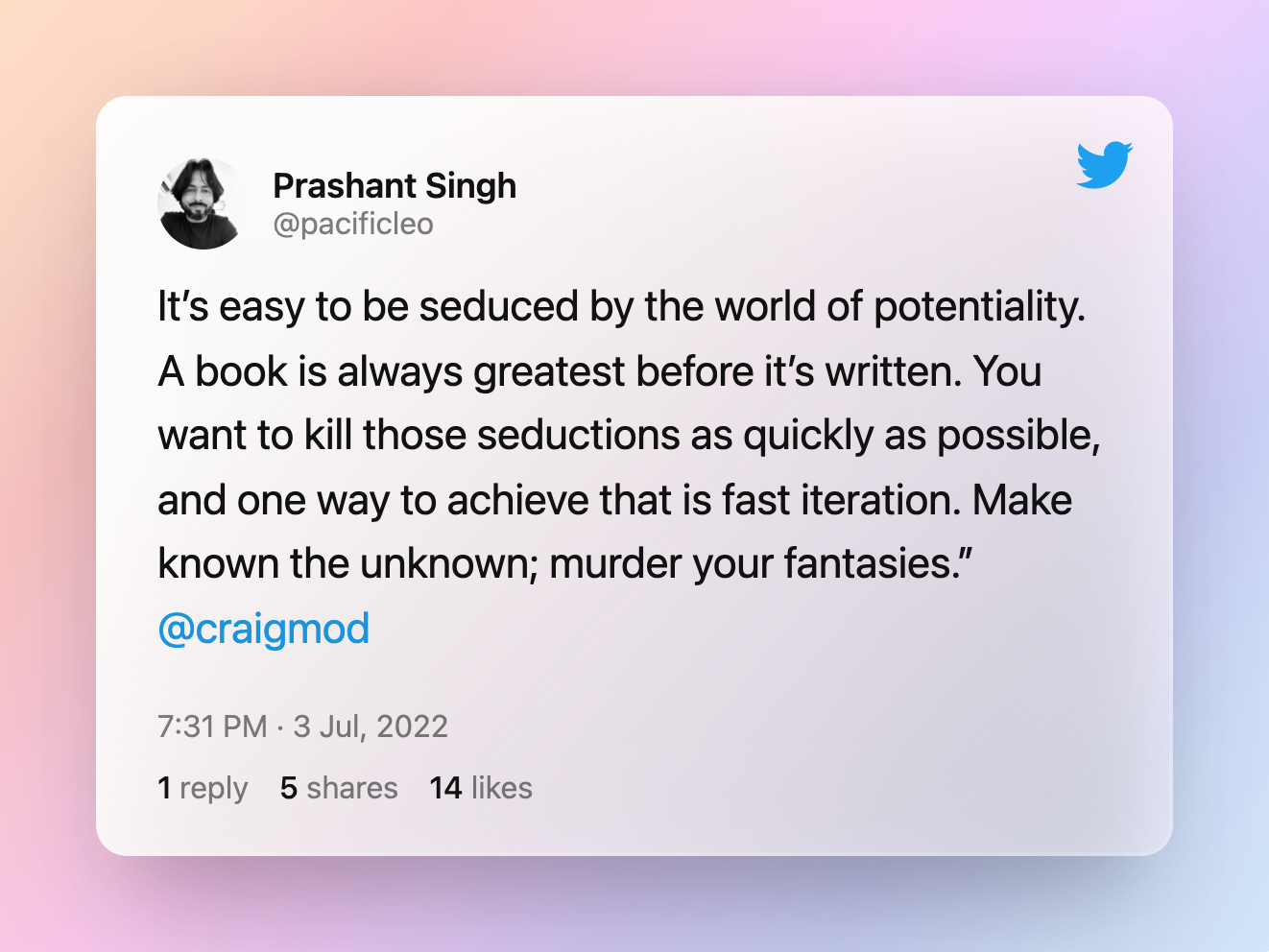In Alchemy, Rory Sutherland shares an interesting observation:
If you would like everything in your kitchen to be dishwasher-proof, simply treat everything in your kitchen as though it was; after a year or so, anything that isn't dishwasher-proof will have been either destroyed or rendered unusable. Bingo - everything you have left will now be dishwasher-proof! Think of it as a kind of kitchen-utensil Darwinism.
Similarly, if you expose every one of the world's problems to ostensibly logical solutions, those that can easily be solved by logic will rapidly disappear, and all that will be left are the ones that are logic-proof - those where, for whatever reason, the logical answer does not work. Most political, business, foreign policy and, I strongly suspect, marital problems seem to be of this type.
That’s a very profound thought, but sounds logical. I can see a similar process in work when it comes to building culture. We can start from many assumptions & wishful thoughts - but what remains in the end are those rituals that are ‘dishwasher-proof’. What do you think?
And on that thought, here’re some of the most interesting topics & ideas that made my work enjoyable.
1. Vanity metrics
John Cutler's short essay on vanity metrics is a good read on the topic. He starts with sharing three fundamental problems in using vanity metrics.
Vanity metrics lack context.
Vanity metrics have unclear intent.
Vanity metrics do not guide action and learning.
These problems seem obvious, but can be difficult to identify and acknowledge. And so it becomes difficult to identify a vanity metric.
He goes on to present ten statements that describe the healthy and effective use of any metric. We can use these to put any metric to test and decide if it is a vanity metric or not.
I find this post very useful as it simplifies this topic and gives actionable inputs.
2. The hacker way
This post is for me. And for you (even if you don’t have a kid in any age group). Stepan Parunashvili talks of how he taught his nephew to program. He calls it “The hacker way”.
He lays out 4 core principles.
Principle A: Learning is Play
Principle B: Meet them at their interests
Principle C: Let kids drop things
Principle D: Treat kids like junior apprentices
As I read this post (and re-read), I could clearly see some of the mistakes I’ve been making in my teaching methods. I am going to try these and hopefully make Saanvi & Meher find their joy.
Principle D applies very well to juniors in your team. I have seen this helping in meaningfully fast-track learning of many folks in my team and has become an integral part of the onboarding flow in my team.
3. Brand marketing vs performance marketing
I am confident that most of us know the difference between the brand and performance marketing. Yet, every marketer finds it extremely challenging to find the right balance between them.
This post by Wes Kao is a good 101 on the topic and helps with some good inputs on how to decide your approach towards the two. Her writing has a unique style that makes the learning more visual (even when there are no graphs or images in front of you). Sample this:
You get what I mean, right?
4. Case for average & worst case performance
In a recent post in LessWrong, Alyssa Vance shared an insightful take on the progress of deep-learning-based AI in various fields. This snippet captures the premise of the article well:
Alyssa goes on to share multiple examples to substantiate the claim “Humans are very reliable agents”.
I like the argument around average case & worth case performance.
I can imagine this kind of tradeoff being useful in customer delight vs trust & safety. We should aim to ensure a good average case performance when it comes to customer delight. But when it comes to trust & safety, the worst case performance defines our brand and thus we have to ensure that our ‘worst case’ is the acceptable good level we want to be known for.
What do you think?
5. One Concept in 5 Levels
Last week, I shared a bunch of pieces covering Zero Knowledge Proof. Those pieces worked for me as they 1) Explain the topic in a simple way (content) and 2) Make the experience of learning memorable with the way they do it (delivery).
Siddhant shared the following video as his favourite explanation of Zero Knowledge Proof - Computer Scientist Explains One Concept in 5 Levels of Difficulty
It, indeed, is a really good one. Prof Amit Sahai's explanations are simple and highly engaging. I love his conversational style - very encouraging and amps up the curiosity all around.
I am sharing this video today for one more reason besides Prof. Sahai's teaching. I loved the concept of this series - an expert explains a complex topic to 5 different people; a child, a teen, a college student, a grad student, and an expert.
There are some more videos in this series, we tried the ones around Origami and Machine Learning. They are fun and do the job very well.
6. OXO & the beauty of Design
How OXO conquered the American kitchen talks about what makes the no. 1 kitchen gadget company in the USA. As the author points out - “The people who love OXO really love OXO.”
Here’re a couple of key snippets that stand out for me:
“We question everything. We might be lucky enough to have a product that does well for decades, but if we learn something new, we’ll go back and take another look at it.”
“Being an OXO employee means owning a lot of half-finished kitchen gadgets in the wrong color,” Mor said. “A lot of them almost work.”
This Fast Company article covers the origin story of their OXO Swivel peeler. If you love product design stories, this one is a ‘highly recommended’ material.
It’s difficult to imagine the depth to which product designers went in creating this product. Clearly, it deserves to be listed as one of the great icons of 20th-century industrial design.
7. Everything else
Some random goodness from the internet:
Follow: Things I have drawn (@thingsihavedrawn) imagines a world in which the things kids draw are real. It’s amazing to see how a silly little project between dad, Tom, and his two sons Dom and Al has shaped up into something much bigger now.
Watch: Incredible logistics behind Weather Forecasting (a complex ecosystem powered by volunteers, satellites, super computers and more). And while you’re at it, checkout Ventusky - a beautiful website/app potentially using this feed.
Read: If boredom is a necessary ingredient, then portable internet is a disaster for doing the work. How are you supposed to get excited about anything if you're never bored?
Experience: Joseph Rodriguez’s photo essay capturing life in NY as he saw it while driving the cab in 1984-85. A collection of produce labels from the “golden age” of lithograph crate labels, 1880 to 1950
Before we sign off, here’s a quick PSA from Craig Mod (via Prashant)
That's all for this week, folks!
If you enjoyed this post, show your love by commenting and liking it. I write this newsletter to share what I learnt from others. If you learnt something from this today, why not share it with a couple of your friends to continue this chain?







Substack should make it easier for users to comment while being able to refer to the article (without having to scroll endlessly). This is especially important for curated content like this newsletter where there are multiple topics to comment on.
Anyway, two things. On dishwasher-proof culture. I hear you. What will remain are the daily processes and habits that are sustainable in the environment you have fostered for the team as a leader. What survives, by the continuous process of elimination, is the culture.
This premise travels wider I think. We're going to see more solved problems everywhere, and we'll spend less time on them. No one will design a window from scratch when building a house. What our attention will go to are the unsolved problems, while standing on solved problems. Think APIs, think cloud computing. There'll be more variety in the creative work (psycho-logical problems you may say) that people will invest themselves in.
On being judged on the worst-case performance, a good filter is to think of anything that can be or is described as a 'thankless job'. In cricket, a wicketkeeper who pulls off spectacular catches but misses a dolly will be remembered and judged on the blunder. This drives risk aversion because one has more to lose than to gain. Driving is one such thing too, unless you're incentivized for best-case performance like in racing.